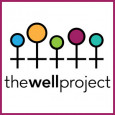This post originally appeared on and can be read in its entirety at The Well Project.
How did you get your start in HIV advocacy? Are you particularly passionate about a specific topic or demographic?
After 15 years of living with HIV, 10 of which I spent in terror waiting for death to catch up to me (after being given one to five years to live), I was invited to attend an HIV conference where I met some amazing advocates who impressed me very much. It planted the seed of interest and passion to get involved but I didn’t know how, or where. The following year I went back to that conference, but this time I met a group of women called the Positive Women’s Network USA, a passionate group of women dedicated to advocating for the HIV community for social, racial, gender, and reproductive justice, I also heard Bruce Richman of the Prevention Access Campaign share the U equals U message for the first time. These people ignited a fire in me that would change my life. I found my place, my passion, and knew I could not sit on the sidelines any longer. I became passionate about sharing the U equals U message because it changed everything about how I felt about myself. The following year I met The Well Project, where I learned the power of sharing my story, and where I really started to develop my own voice.
I want to fight for the rights of the disenfranchised and under-represented communities, including: women, people of color, LGB and particularly transgender communities, because someone else did it for me. I want to educate people about the modern realities of HIV, especially youth, as I think they’re the key to ending stigma and the epidemic.
Do you think women living with HIV face unique challenges? What are they?
Absolutely, I think for most of the nearly 40 years of the HIV epidemic, women have been overlooked and underrepresented. Since the early days, HIV has been surrounded by stereotypes, misinformation, and stigma. For years women were left out of the conversation because it was mostly seen as a gay men’s disease. Women, Black people and other people of color, and transgender communities are more likely to be afflicted by mental illness such as depression and anxiety, homelessness, food insecurity, comorbidities, and/or forced into sex work for survival, yet disrespected by healthcare professionals, and underrepresented in research and decision-making tables. It’s long past time that we be truly seen and heard.
Do you work to address those challenges through your work? If so, how?
I think education and awareness is key, that’s why I started Facebook groups (Alabama Poz Life and Alabama Transgender Coalition) to try to educate others, raise awareness, and build community. I also try to build my networks, affiliations, and reputation. While it goes against my nature as I’m not a braggy or egotistical type of person. I heard a great woman say something that changed my views about it, she said (paraphrasing) “Don’t be shy about building yourself up and making yourself big, share your accomplishments, accolades, and affiliations, make yourself big, because big voices get heard.” Most of us women don’t like to brag, but she showed me how it can be a useful tool to help you in your work in representing others, so don’t be afraid to brag a little ladies, big voices get heard!!
Can you share a story that illustrates how you’ve been successful in working with women living with HIV?
I had been in advocacy about two years, just doing my thing, I didn’t really think anyone even noticed really, when I went to a conference where a woman walked up to me and she knew who I was, she hugged me almost in tears and proceeded to tell me that she had been watching my work for a while and I was one of the reasons she got into advocacy herself. My mind was blown and I was so extremely touched. I was awakened to the fact that you never know most of the time who is watching you, how many people you’re really reaching, they don’t usually come walking up to you, but you ARE reaching somebody, lots of somebodys. Always keep that in mind.
What advice would you offer a woman who recently learned that she has HIV?
Please don’t waste your time living in fear like I did for 10 years, you can live a long, healthy, productive, and dignified life with HIV, and with an undetectable status you can even have unprotected sex and even have children, SAFELY!! So life isn’t over, it’s just beginning. I think my life is better now than before my diagnosis, no lie. Just stay adherent to your meds, if you can take a vitamin every day, then another pill is really no big deal, it’s just a pill that saves your life. Keep your doctor appointments and be proactive with your healthcare, ask questions, research, etc. Build a supportive network of friends, family, therapist, etc. and keep your status close to the vest until you’ve had time to think about the ramifications and whether you’re fully prepared for to disclose, because unfortunately stigma is still a very real thing, but know that you’re not alone. Continue reading...
The Well Project is a non-profit organization whose mission is to change the course of the HIV/AIDS pandemic through a unique and comprehensive focus on women and girls. Visit their website, www.thewellproject.org, to access fact sheets (English and Spanish), blogs, and advocacy tools, and to join a global community of women living with HIV.








Comments
Comments